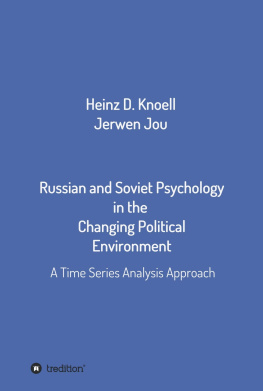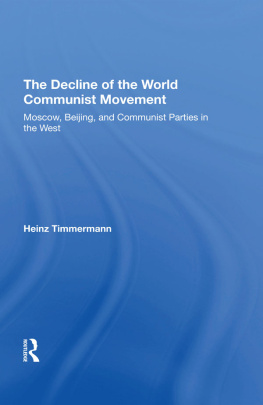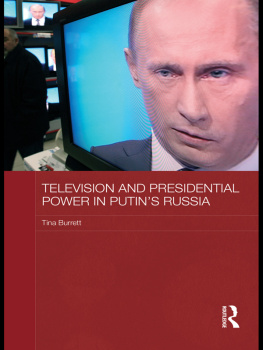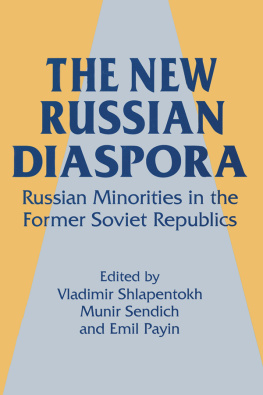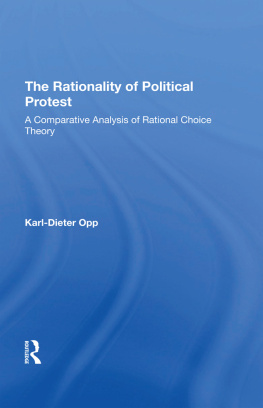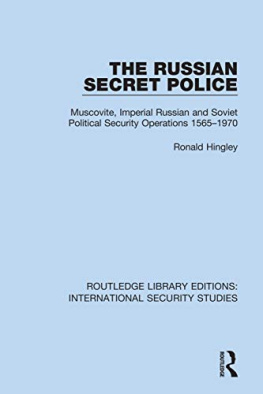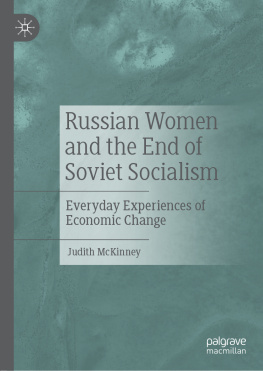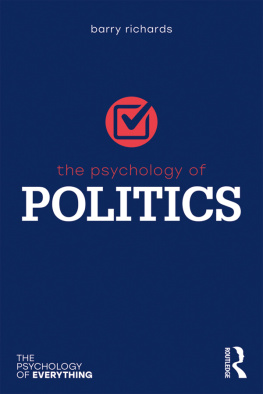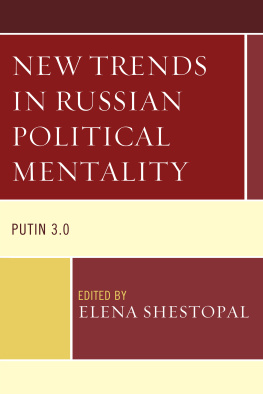Heinz-Dieter Knöll - Russian and Soviet Psychology in the Changing Political Environment: A Time Series Analysis Approach
Here you can read online Heinz-Dieter Knöll - Russian and Soviet Psychology in the Changing Political Environment: A Time Series Analysis Approach full text of the book (entire story) in english for free. Download pdf and epub, get meaning, cover and reviews about this ebook. year: 2021, publisher: tredition, genre: Politics. Description of the work, (preface) as well as reviews are available. Best literature library LitArk.com created for fans of good reading and offers a wide selection of genres:
Romance novel
Science fiction
Adventure
Detective
Science
History
Home and family
Prose
Art
Politics
Computer
Non-fiction
Religion
Business
Children
Humor
Choose a favorite category and find really read worthwhile books. Enjoy immersion in the world of imagination, feel the emotions of the characters or learn something new for yourself, make an fascinating discovery.
- Book:Russian and Soviet Psychology in the Changing Political Environment: A Time Series Analysis Approach
- Author:
- Publisher:tredition
- Genre:
- Year:2021
- Rating:5 / 5
- Favourites:Add to favourites
- Your mark:
- 100
- 1
- 2
- 3
- 4
- 5
Russian and Soviet Psychology in the Changing Political Environment: A Time Series Analysis Approach: summary, description and annotation
We offer to read an annotation, description, summary or preface (depends on what the author of the book "Russian and Soviet Psychology in the Changing Political Environment: A Time Series Analysis Approach" wrote himself). If you haven't found the necessary information about the book — write in the comments, we will try to find it.
Heinz-Dieter Knöll: author's other books
Who wrote Russian and Soviet Psychology in the Changing Political Environment: A Time Series Analysis Approach? Find out the surname, the name of the author of the book and a list of all author's works by series.
Russian and Soviet Psychology in the Changing Political Environment: A Time Series Analysis Approach — read online for free the complete book (whole text) full work
Below is the text of the book, divided by pages. System saving the place of the last page read, allows you to conveniently read the book "Russian and Soviet Psychology in the Changing Political Environment: A Time Series Analysis Approach" online for free, without having to search again every time where you left off. Put a bookmark, and you can go to the page where you finished reading at any time.
Font size:
Interval:
Bookmark:
Publisher & Print: | tredition GmbH, Halenreie 40-44, 22359 Hamburg Germany |
Font size:
Interval:
Bookmark:
Similar books «Russian and Soviet Psychology in the Changing Political Environment: A Time Series Analysis Approach»
Look at similar books to Russian and Soviet Psychology in the Changing Political Environment: A Time Series Analysis Approach. We have selected literature similar in name and meaning in the hope of providing readers with more options to find new, interesting, not yet read works.
Discussion, reviews of the book Russian and Soviet Psychology in the Changing Political Environment: A Time Series Analysis Approach and just readers' own opinions. Leave your comments, write what you think about the work, its meaning or the main characters. Specify what exactly you liked and what you didn't like, and why you think so.

